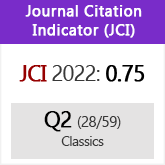El enfrentamiento entre filósofos y tiranos, de la biografía helenística a la tardoantigua: evoluciones de un tópico biográfico
DOI:
https://doi.org/10.3989/emerita.2020.06.1934Palabras clave:
biografía de filósofos griegos, tópicos biográficos, tiranos, Antigüedad Tardía, Eunapio de Sardes, Diógenes LaercioResumen
El enfrentamiento entre filósofos y personajes poderosos es un elemento habitual en las biografías helenísticas. En ocasiones, este enfrentamiento es simplemente dialéctico, pero no faltan casos de auténticos «martirios» filosóficos paganos cruentos, con persecuciones en toda regla. Estas muertes otorgan al filósofo una heroización celestial, al menos según los epigramas integrados en la peripecia biográfica, seguramente por la asociación con el culto a los tiranicidas y, en general, a los héroes que reciben una muerte violenta en la tradición mitológica. Inspirado, plausiblemente, en la muerte de Sócrates, el tópico se perpetúa en las vidas de los hombres divinos tardoantiguos, donde, sin embargo, no se produce en ningún caso la muerte heroica y divinizante del filósofo, a pesar de que hubiera sido un contrapunto excelente a las actas de martirios cristianos, cuya literatura empieza a florecer precisamente en este período.
Descargas
Citas
Acerbi, S. 2015: «La parrhesia del theios aner en la historia religiosa de Teodoreto de Ciro», Estudios Clásicos 148, pp. 23-37.
Alviz Fernández, M. 2016: «El concepto de θεῖος ἀνήρ en la Antigüedad Tardía: hacia un nuevo marco definitorio», Espacio, Tiempo y Forma: Revista de la Facultad de Geografía e Historia. Serie 2, Historia Antigua 29, pp. 11-25. https://doi.org/10.5944/etfii.29.2016.16376
Anderson, G. 1994: Sage, Saint and Sophist. Holy Men and their Associates in the Early Roman Empire, Londres-Nueva York.
Banchich, T. M. 1987: «On Goulet's Chronology of Eunapius' Life and Works», Journal of Hellenic Studies 107, pp. 164-167. https://doi.org/10.2307/630077
Bell, J. M. 1978: «Simonides in the Anecdotal Tradition», Quaderni Urbinati di Cultura Classica 28, pp. 29-86. https://doi.org/10.2307/20537863
Bernard, P. 1984: «Le philosophe Anaxarque et le roi Nicocréon de Salamine», Journal des Savants 1-2, pp. 3-49. https://doi.org/10.3406/jds.1984.1474
Bieler, L. 1935-1936: θεῖος ἀνήρ: das Bild des göttlichen Menschen in Spätantike und Frühchristentum, Viena (reimpr. Darmstadt, 1976).
Blockley, R. C. 1981-1983: The Fragmentary Classicising Historians of the Later Roman Empire. Eunapius, Olympiodorus, Priscus and Malchus, 2 vols., Liverpool.
Brown, P. 1971: «The Rise and Function of the Holy Man in Late Antiquity», Journal of Roman Studies 61, pp. 81-101. https://doi.org/10.2307/300008
Catenacci, C. 2012: Il tiranno e l'eroe: storia e mito nella Grecia antica, Roma.
Chitwood, A. 2004: Death by Philosophy. The Biographical Tradition in the Life and Death of the Archaic Philosophers Empedocles, Heraclitus, and Democritus, Michigan. https://doi.org/10.3998/mpub.17608 PMCid:PMC3455939
Cortina, F. 1995: «Pítac: la caracterització del σοφός», Ítaca 9-11, pp. 11-16.
Cox, P. 1983: Biography in Late Antiquity. A Quest for the Holy Man, Berkeley.
Detienne, M. 1967: Les maîtres de vérité dans la Grèce archaïque, París.
Dorandi, T. 1994: «De Zénon d'Élée à Anaxarque: fortune d'un topos littéraire», en Lagrée, J. y Delattre, D. (eds.), Ainsi parlaient les Anciens, Lille, pp. 27-37.
Dorandi, T. (ed.) 2013: Diogenes Laertius, Lives of Eminent philosophers, Cambridge-Nueva York.
du Toit, D. S. 1997: Theios anthropos: zur Verwendung von «theios anthrōpos» und sinnverwandten Ausdrücken in der Literatur der Kaiserzeit, Tubinga.
Fairweather, J. 1974: «Fiction in the Biographies of Ancient Writers», Ancient Society 5, pp. 231-275.
Fairweather, J. 1983: «Traditional Narratives, Influence and Truth in the Lives of the Greek Poets», Papers of the Liverpool Latin Seminar 4, pp. 315-369.
Fowden, G. 1982: «The Pagan Holy Man in Late Antique Society», Journal of Hellenic Studies 102, pp. 33-59. https://doi.org/10.2307/631125
Fuentes González, P. P. 2003: «¿Necesitaban de un amigo los cínicos antiguos?», Bitarte: Revista Cuatrimestral de Humanidades 31, pp. 51-72.
Geffcken, J. 1929: «Antiplatonica», Hermes 64, pp. 87-109.
Gentili, B. 1984: Poesia e pubblico nella Grecia antica, Roma [traducción castellana: Poesía y público en la Grecia antigua, Barcelona 1996].
Giorgini, G. 1993: La città e il tiranno. Il concetto di tiranide nella Grecia del VII-IV sec. a. C., Milán.
Gómez, P. 2002: «Savis i tirans: la correspondència dels Set al llibre I de Diògenes Laerci», Ítaca 18, pp. 191-209.
Goulet, R. 1980: «Sur la chronologie de la vie et des oeuvres d'Eunape de Sardes», Journal of Hellenic Studies 100, pp. 60-72. https://doi.org/10.2307/630732
Goulet, R. 2014: Eunape de Sardes. Vies de philosophes et sophistes, 2 vols., París.
Goulet, R. 2016: «Sôpatros d'Apamée», en Goulet, R. (ed.), Dictionnaire des Philosophes Antiques vol. VI, pp. 459-463.
Grau, S. 2009: «Come parlavano i filosofi? Analisi delle forme espressive dei filosofi greci nella biografia antica», Lexis 27, pp. 405-446.
Grau, S. 2010: «Tipificación en la biografía griega antigua de filósofos: la construcción de una imagen preconcebida», Espíritu 140, pp. 435-492.
Grau, S. 2013: «Diogenes Laertius between Tradition and Innovation: Philosophers and θεῖοι ἄνδρες», en García-Gasco, R., González Sánchez, S. y Hernández de la Fuente, D. (eds.), The Theodosian Age (A.D. 379-455): Power, Place, Belief and Learning at the End of the Western Empire, Oxford, pp. 183-189.
Grau, S. 2019: «Usos i abusos del vi per part dels filòsofs antics segons les biografies», en Pomer Monferrer, J. J. y Rovira, H. (eds.), Aigua i vi a les literatures clàssiques i la seua recepció, Reus, pp. 63-78.
Grau, S. y Narro, A. 2013: «Vidas de filósofos y hechos apócrifos de los apóstoles: algunos contactos y elementos comunes». Estudios Clásicos 143, pp. 65-92.
Jacob, Ch. 2004: «Questions sur les questions: archéologie d'une pratique intellectuelle et d'une forme discursive», en Volgers, A. y Zamagni, C. (eds.), Erotapokriseis. Early Christian Question-and-Answer Literature in Context, Lovaina-París-Dudley, pp. 25-54.
Jocelyn, H. D. 1977: «The Ruling Class of the Roman Republic and Greek Philosophers», Bulletin of the John Rylands Library 59, pp. 323-366. https://doi.org/10.7227/BJRL.59.2.5
Jufresa, M. y Fau, M. T. 2007: «La relación entre poeta y tirano en la Grecia arcaica», Nova Tellus 25, pp. 93-116. https://doi.org/10.19130/iifl.nt.2007.25.1.214
Junqua, F. 2006: «Tyrans et philosophes: rôle de la correspondance dans les relations entre sagesse et pouvoir», en Laurence, P. y Guillaumont, F. (eds.) Epistulae antiquae 4. Actes du IVe colloque international L'épistolaire antique et ses prolongements européens, Lovaina, pp. 27-50.
Kivilo, M. 2010: Early Greek Poets' Lives: The Shaping of the Tradition, Leiden-Boston. https://doi.org/10.1163/ej.9789004186156.i-272
Lefkowitz, M. R. 1978: «The Poet as a Hero: Fifth-Century Autobiography and Subsequent Biographical Fiction», Classical Quarterly 28, pp. 459-469. https://doi.org/10.1017/S0009838800034996
Lefkowitz, M. R. 1981: The Lives of the Greek Poets, Baltimore.
Lefkowitz, M. R. 2009: «Biographical Mythology», en Dill, U. y Walde, Ch. (eds.), Antike Mythen: Medien, Transformationen, und Konstruktionen (Studien in Honorem Fritz Graf), Berlín, pp. 516-531. https://doi.org/10.1515/9783110217247.6.516
Lewis, S. 2006: Ancient Tyranny, Edimburgo. https://doi.org/10.3366/edinburgh/9780748621255.001.0001
Mejer, J. 1994: «Diògene Laërce», en Goulet, R. (ed.), Dictionaire des philosophes antiques, París, vol. II, pp. 824-833.
Morgan, A. K. (ed.) 2003: Popular Tyranny. Sovereignty and its Discontents in Ancient Greece, Austin.
Mossé, C. 1969: La tyrannie dans la Grèce antique, París.
Penella, R. J. 1990: Greek Philosophers and Sophists in the Fourth Century A. D. Studies in Eunapius of Sardis, Leeds.
Ricci, M. L. 1964: «Topica pagana e cristiana negli Acta Martyrum», Atti dell'Accademia Toscana «La Colombaria» 38, pp. 37-122.
Riginos, A. S. 1976: Platonica. The Anecdotes Concerning the Life and Writings of Plato, Leiden.
Ronconi, A. 1966: «Exitus illustrium uirorum», Reallexikon für Antike und Christentum VI, Stuttgart, col. 1258-1268.
Runia, D. T. 1997: «Diogenes Laertios», en Cancik, H. y Schneider, H. (eds.), Der neue Pauly III, Stuttgart, pp. 601-603.
Sánchez de la Torre, A. 1994: La tiranía en la Grecia antigua, Madrid.
Simonetti, M. 1956: «Qualche osservazione a proposito dell'origine degli Atti dei martiri», Revue d'études Augustiniennes 2, pp. 39-57. https://doi.org/10.1484/J.REA.5.103905
Sollenberger, M. G. 1991-1992: «The Lives of the Peripatetics: An Analysis of the Contents and Structure of Diogenes Laertius' Vitae philosophorum Book 5», en Aufstieg und Niedergang des Römischen Welt, Band II.36.5 y II.36.6, Nueva York-Berlín, pp. 3793-3879. https://doi.org/10.1515/9783110864298-001
Solmsen, F. 1940: «Some works of Philostratus the Elder», Transactions of the American Philological Association 71, pp. 556-572. https://doi.org/10.2307/283144
Stuart, D. R. 1931: «Authors' Lives as Revealed in their Works», en Classical Studies in honor of John C. Rolfe, Filadelfia, pp. 285-304.
Temmerman, K. de y Demoen, K. (eds.) 2016: Writing Biography in Greece and Rome. Narrative Technique and Fictionalization, Cambridge.
Thompson, S. 1955-19582: Motif-Index of Folk-Literature, 6 vols., Bloomington.
Yerli, Ch. 1992: «Figures du tyran archaïque: entre le monstre et le sage», en Calame, Cl. (ed.), Figures grecques de l'intermédiaire, Lausana, pp. 3-32.
Descargas
Publicado
Cómo citar
Número
Sección
Licencia
Derechos de autor 2020 Consejo Superior de Investigaciones Científicas (CSIC)

Esta obra está bajo una licencia internacional Creative Commons Atribución 4.0.
© CSIC. Los originales publicados en las ediciones impresa y electrónica de esta Revista son propiedad del Consejo Superior de Investigaciones Científicas, siendo necesario citar la procedencia en cualquier reproducción parcial o total.Salvo indicación contraria, todos los contenidos de la edición electrónica se distribuyen bajo una licencia de uso y distribución “Creative Commons Reconocimiento 4.0 Internacional ” (CC BY 4.0). Puede consultar desde aquí la versión informativa y el texto legal de la licencia. Esta circunstancia ha de hacerse constar expresamente de esta forma cuando sea necesario.
No se autoriza el depósito en repositorios, páginas web personales o similares de cualquier otra versión distinta a la publicada por el editor.














